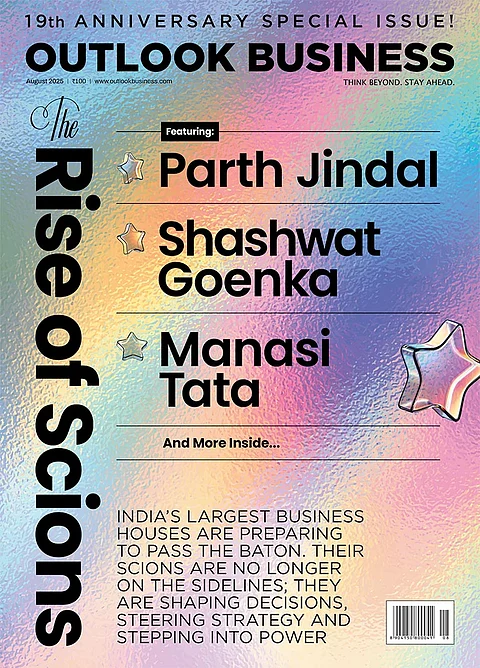You’re feeling particularly tired one day and want to get a massage. You look up Housejoy or UrbanClap and call for a masseur, sit back and prepare for some serious de-stressing. But, what’s the guarantee that the person assigned to you is the one coming to your place? What if the masseur switched places with his cousin who has a criminal history? Let’s face it, we don’t always go back to an app to check if the details are correct and the person matches the picture on your phone. So much so that Uber has to warn every rider to “ensure the driver matches the picture on the app.” Those platforms may have done everything right, but there are still chances of fraud during the last leg, when people are involved.
But with the help of technology and artificial intelligence, Veri5Digital is trying to set things right across several use cases. Essentially, it is the guard at the door for its client companies and the start-up is armed with one of the largest identity databases in the world, UIDAI’s Aadhaar.
Donning the lab coat
An MCS dropout from San Jose State University, Saru Tumuluri joined Khosla Labs in 2016 to spearhead their identity verification project. Demonetisation hadn’t hit India yet, and ‘digital identity’ as a sector in itself didn’t mean much. “There was a lot of buzz around financial inclusion. Khosla Labs conducted hackathons and, when I spoke with the participants, I realised that everybody was looking at providing a KYC service, which still remains a small vertical when you compare it with payments service,” she says.
But the Cambridge Analytica scandal, featuring Facebook, really shook people up and they realised that their identity is a big deal. That’s when Tumuluri’s team began building Veri5Digital, a software as a service (SaaS) product, piggybacking on Unique Identification Authority of India’s (UIDAI) Aadhaar system. She explains, “There was a central database and all the enrolments are written through biometrics; the irises were scanned, and there were demographic details such as name, address, gender, date of birth, phone number and photo.” ID parameters of 1.3 billion Indians were written into UIDAI’s database; it was doubtlessly gold. But how do you mine it?
Similar to FMCGs, which have distributors at multiple levels of their supply chain — at godowns, in hubs across cities and towns — the idea was to license intermediaries known as Authorised Service Agency and Authorised User Agency including National Securities Depository Limited, Mastercard and others to distribute data. UIDAI granted licences to 260 companies and Veri5Digital became one of them.
“Khosla Labs is a licensed entity and our peers are banks, insurance companies, and other financial institutions,” adds Tumuluri. Now, if you visit a bank to open an account, you have to submit your fingerprint or an OTP confirmation to show that your Aadhaar number is valid. Additionally, you provide details such as your address and DOB. Since the bank is a licensed entity, it can take your credentials and cross check the data with the UIDAI’s database. The verification is done in real-time and, voila! Your KYC is complete and you can open an account. Veri5Digital follows a similar mechanism for the institutions that use its platform, and today it has a nearly 250-strong client base.
The veri5cation
Have you ever used a platform called Cashify? It works like OLX, but with a difference. It only lists laptops and mobile phones, all refurbished and completely verified. Which means you don’t have to concern yourself with contacting the buyer or the seller, you deal with Cashify only. But, how does the start-up know if the seller is who he/she claims to be or if the phone was stolen? “Documents are easy to forge and, therefore, the challenge is to validate the identity of the person who claims to be the owner of the phone,” says Aditya Asthana, entrepreneur in residence, Cashify. That’s when they reached out to Veri5Digital.
Now, when the seller provides his/her Aadhaar number, Cashify’s system powered by Veri5Digital sends an OTP to the seller’s mobile number registered with the UIDAI database. The phone changes hands when the seller shares the right OTP. This confirms that the seller’s identity; to ensure that this person is not dealing in stolen goods.
Bengaluru-based carpooling app, Quick Ride, is another Veri5 client that uses its services to validate the identity of its riders. KNM Rao, co-founder and CEO, Quick Ride, explains, “We use the rider’s official email address to verify their identity. However, there are many professionals such as doctors who don’t have an official email ID.” Hence, such customers were being left out of Quick Ride’s ecosystem. “That’s where Veri5Digital’s Aadhaar verification comes in handy,” he says.
There’s another advantage in using the start-up’s tech — its AI-based face-recognition system, or the visual ID KYC in Veri5 parlance. Tumuluri shares, “We have trained our models to work with government IDs — passport, driving license, Aadhaar, voter ID and PAN card. Once you upload your ID, we check it with the government database.” Then, they ask for a selfie video with the face captured at multiple angles, emulating a person looking at you, and then compare the video with the face in the ID. The team has also built in ‘live-ness’ into the app so that someone can’t wear a mask and pass the test.
Veri5 also provides for multiple manual-check capabilities for its clients. For instance, after the automated face-recognition is done, the client can opt to run a manual verification of all the government IDs. To go a step further, it facilitates a videocall between the client company’s customer and its verifying agent. “We have built systems into the points of contact (such as websites or mobile apps) of our clients through which their agents can call the customers, as a back-end verification,” adds Tumuluri.
Rahul Agarwal, principal consultant-digital transformation practice, Frost & Sullivan believes customer verification is no cakewalk. “The customers expect complete security and a seamless and simplified verification system,” he says. Then, of course, there’s the crucial question of privacy.
Although we have become careless with the boom of social media, with our data out there for everyone to track, there is a growing concern that nothing is private anymore. Google knows everything we are looking for, every video we watch; WhatsApp and Facebook know who we are talking to. How then, does Veri5 protect the data of consumers using its clients’ services?
Tumuluri says that they check with the client’s customer at every level, if s/he is ok with sharing that data. Essentially, like every product and service, Veri5 lists the terms and conditions. But on top of that, Veri5 deletes the data from its repository once its client’s purpose is served. For instance, if a user has shared data with a site, once the information is authenticated by Veri5, the data is deleted from Veri5’s records.
Big Billion
The start-up is certain that these security measures make users comfortable with sharing their data with them, but which businesses most rely on thorough checks?
Agarwal believes it would be online businesses, along with banks and financial institutions. “They currently struggle to comply with the customer verification guidelines on one hand and, at the same time, need a system that minimises fraudulent transactions,” he says. Such customer identification services will allow financial institutions including lending start-ups to set a standard process in place.
Veri5 works with several microfinance companies that provide small loans to people either for business or personal needs. Tumuluri sees a huge opportunity here, but reaching deeper into the lower tiers of the country comes with its own set of challenges. She recalls a recent incident when Veri5’s server crashed for a few hours. While that affected all its clients, it was worse for the ones in the rural regions. “We got a call from the e-sign company in Salem and they said whenever one of our services encounters a glitch, troubles multiply,” she says. For instance, villagers make really long trips to service centres to pay instalments or apply for loans. When a system breaks down, they have to make these trips again on another day. Tumuluri adds that they are working on solutions to make this process more effortless. Hence, the team feels an urgency to build a completely online ecosystem.
The other challenge for Veri5 is finding more use cases, especially since identity verification was barely recognised as a pain point before 2016. But Tumuluri seems to have found an innovative use. “I think there’s immense potential in the construction sector. We could incorporate facial recognition to track workforce in heavy labour sectors,” she says. That would digitise attendance and help companies monitor staff across several shifts seamlessly. Under ideal situation, Veri5 takes about seven hours to install its software in a client’s system. Eventually, Veri5 aims to move towards DIY where it will just ship its software to the client.
But the start-up has to be quick, others are catching up and Veri5Digital is not the only player in this space. There are others such as AuthBridge, IDfy and Digio. AuthBridge was founded before Veri5, in 2005, and generates estimated revenue of $70 million. Meanwhile, IDfy was founded in 2011 and is said to be churning revenue to the tune of $2.5 million. Both these companies cater to the BFSI, insurance, staffing and education sectors, offering services such as video, image and government ID-based KYC. Bengaluru-based Digio is Veri5’s latest competitor. Founded in 2016, the firm clocks an estimated $1 million in revenue, and has raised $400,000 from Rainmatter Technology.
But Tumuluri is not discouraged; the rising competition only means the space is expanding. Veri5 reported revenue of Rs.48 million in FY18 and she claims they saw over 70% growth in FY19. It also raised its first round of funding worth $2 million from Khosla Ventures, which will be used for talent acquisition, tech, and sales and distribution. “We will seek to raise more funds in about a year,” says Tumuluri. The brand is acquiring five to 13 clients a month and has plans to expand its footprint beyond India. Popular names on their client-list include PhonePe, Ola, Cashify, IIFL, and insurance companies such as Reliance Nippon Life Insurance and Aegon Life. “Our deep tech set-up is apt for the global market. We can do everything here that a team in the US can. The US, South-East Asia and the Middle East will be our target markets. In the identity space, we want to be one of the kickass companies in the world,” she concludes.












 Just one email a week
Just one email a week